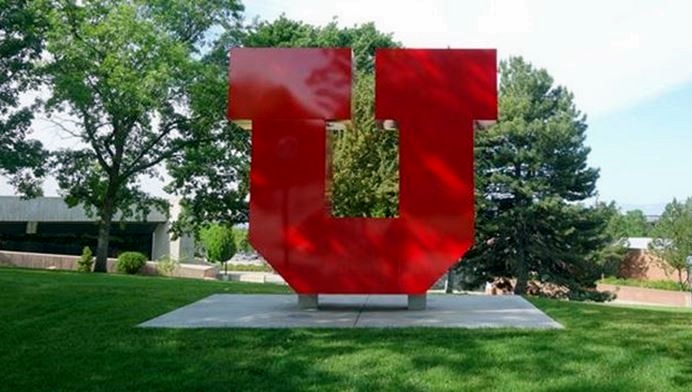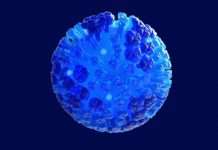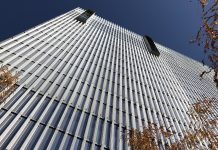SALT LAKE CITY, Utah, May 6, 2020 (Gephardt Daily) — University of Utah Health has announced the start of Utah HERO (Health & Economic Recovery Outreach), a “massive undertaking” that will begin with the testing of 10,000 Utahns across four counties, officials said Wednesday.
The effort is in collaboration with the David Eccles School of Business at the U of U, said a news release.
The data gathered will inform decision-makers in the state as they work to help keep residents safe and get people back to work, the news release said.
“As part of Utah HERO, households in Utah, Davis, Salt Lake, and Summit counties will be randomly selected for participation in the study,” the news release said. “Random sampling is a way to accurately determine how much COVID-19 has spread in Utah without testing every person in the state.”
Utah HERO team members will tag these households with a flyer or door hanger explaining the project. Field teams will then follow up with an in-person visit to gather information about those living in the residence and provide instruction on how to get tested. All those living in the residence who are 12 years and older will be asked to visit a testing site where they will receive two tests: PCR (swab test to detect presence of coronavirus) and serology (blood draw to detect antibodies). Antibodies to the coronavirus indicate probable past infection.
“A survey of this magnitude would normally take months to organize, but we’ve been able to move things forward in a couple of weeks thanks to all of our collaborators,” said Stephen Alder, Ph.D., director of field operations for Utah HERO and professor in the U of U Department of Family and Preventative Medicine. “The University of Utah is committed to serving the state during this difficult time and we hope this information will help our leaders make informed public health and business decisions.”
High levels of voluntary participation will enhance the accuracy of the study and will improve the ability to interpret results of COVID-19 testing, the news release said. Testing is completely confidential and no information on immigration status will be collected.
U of U Health’s Wellness Bus and Huntsman Cancer Institute’s Cancer Screening bus — both of which have been redeployed to perform COVID-19 testing — will be set up in designated neighborhoods to serve as Utah HERO test sites. Testing will also take place at existing U of U Health evaluation tents, as well as pop-up locations at various church parking lots. Testing will be performed at ARUP Laboratories, which does all COVID-19 testing for U of U Health along with other clients in Utah and nationwide.
Utah HERO data will be used to more accurately establish the rate of infection in Utah and rates of infection in various age groups and job categories, the news release said. The data is important because it will indicate where COVID-19 has spread, which occupations and other groups are most impacted, and how many undetected infections are occurring. Undetected infections can occur because people have mild symptoms or no symptoms, or because of differences in testing. This can inform the safest way to relax public health restrictions and get Utah back to work.
“Utah HERO represents the critical balance between protecting public health and moving the economy forward,” said Taylor Randall, dean of the David Eccles School of Business. “This information will help us better understand how COVID-19 has spread through our community and inform business leaders on the best, data-driven ways to get people back into the workforce safely.”
The Governor’s Office of Management and Budget contracted with the U of U to design and implement Utah HERO.
“This study is important because it is the first initiative to gain an understanding of statewide COVID-19 prevalence in Utah,” said Angela Dunn, M.D., state epidemiologist for the Utah Department of Health. “This random sampling allows us to see a representative picture of the extent to which COVID-19 has spread in our community. This will enable us to make informed decisions about how to best move forward.”
Other Utah HERO collaborators include:
- ARUP
- Utah Department of Health
- Salt Lake County Health Department
- Summit County Health Department
- Davis County Health Department
- Utah County Health Department
Staffing for Utah HERO field teams is made possible by Hope Corps, a non-profit organization that connects students to opportunities to serve in the state of Utah and help support the economy.
Here are a few additional details about Utah HERO:
- The project will begin sampling small numbers of households then scale up over a period of weeks.
- Survey participants do not pay for testing and do not need to show proof of insurance.
- Survey participants do not need to show ID or proof of residency.
- Those reporting symptoms will be instructed on safe practices to prevent the spread of COVID-19.
- Those with positive test results will be notified and given instructions on how to quarantine and prevent spread of the disease within households.
- The Church of Jesus Christ of Latter-day Saints has provided parking lot space for additional testing sites.
For more information visit Eccles.link/UtahHero







